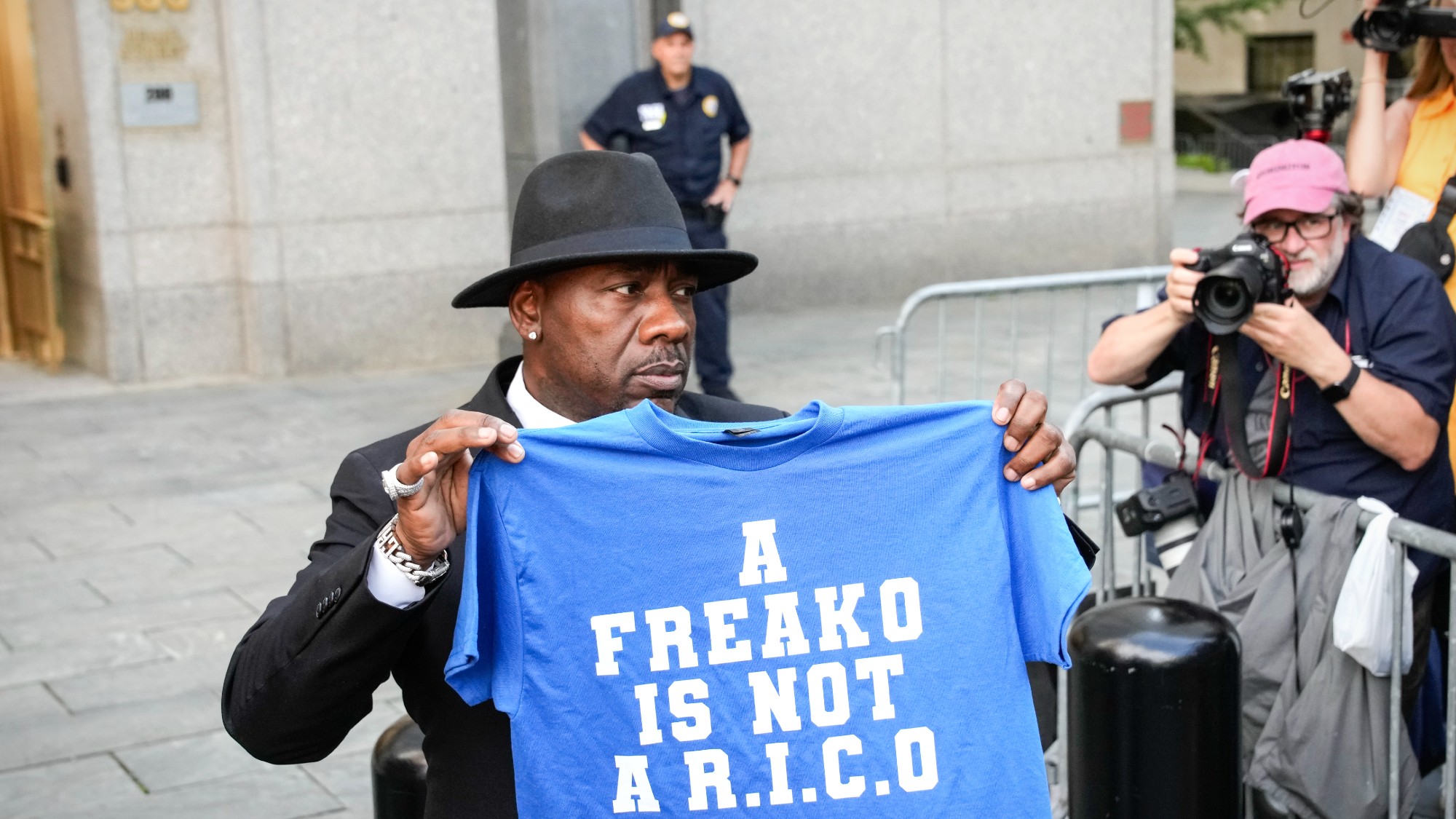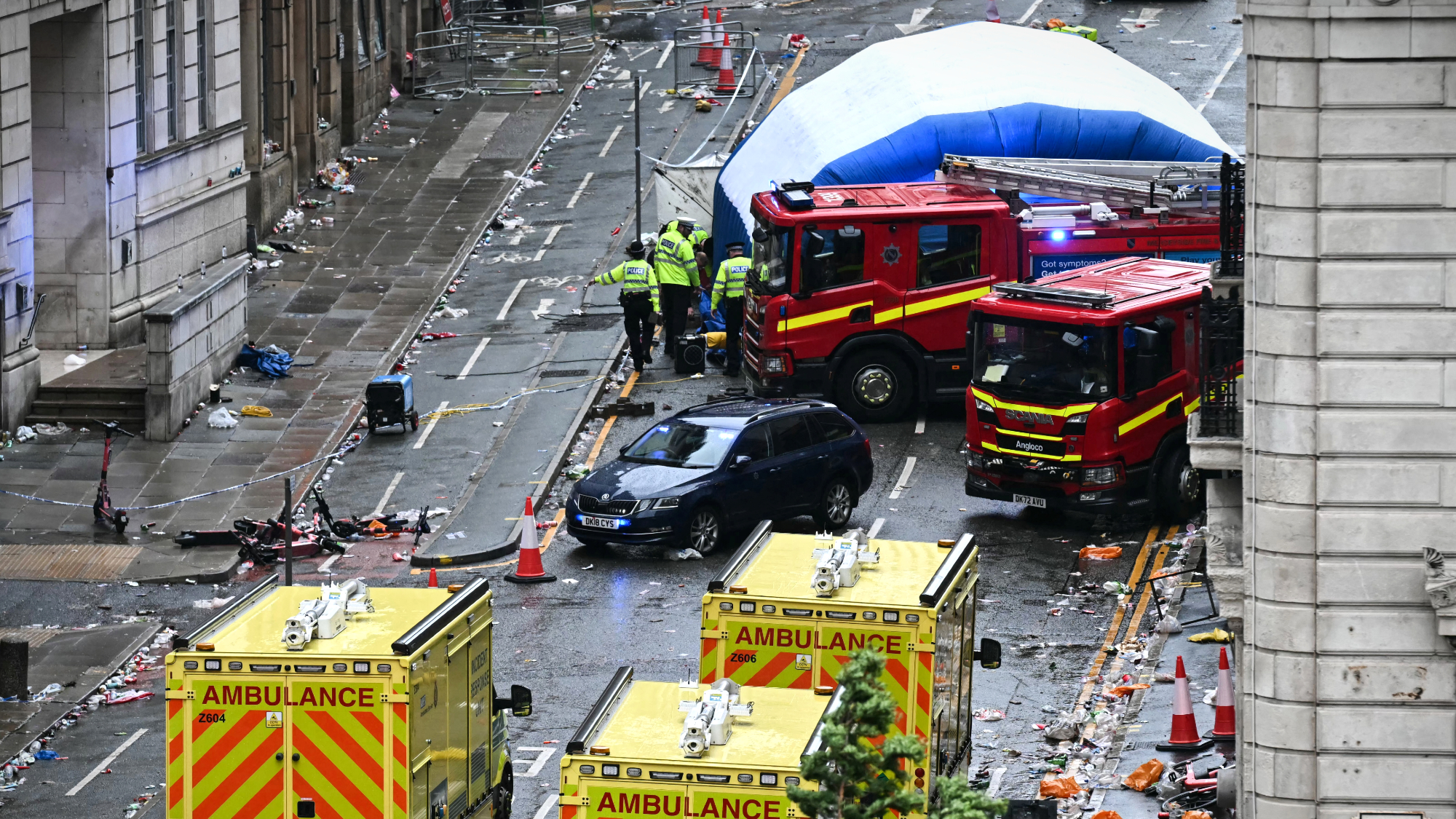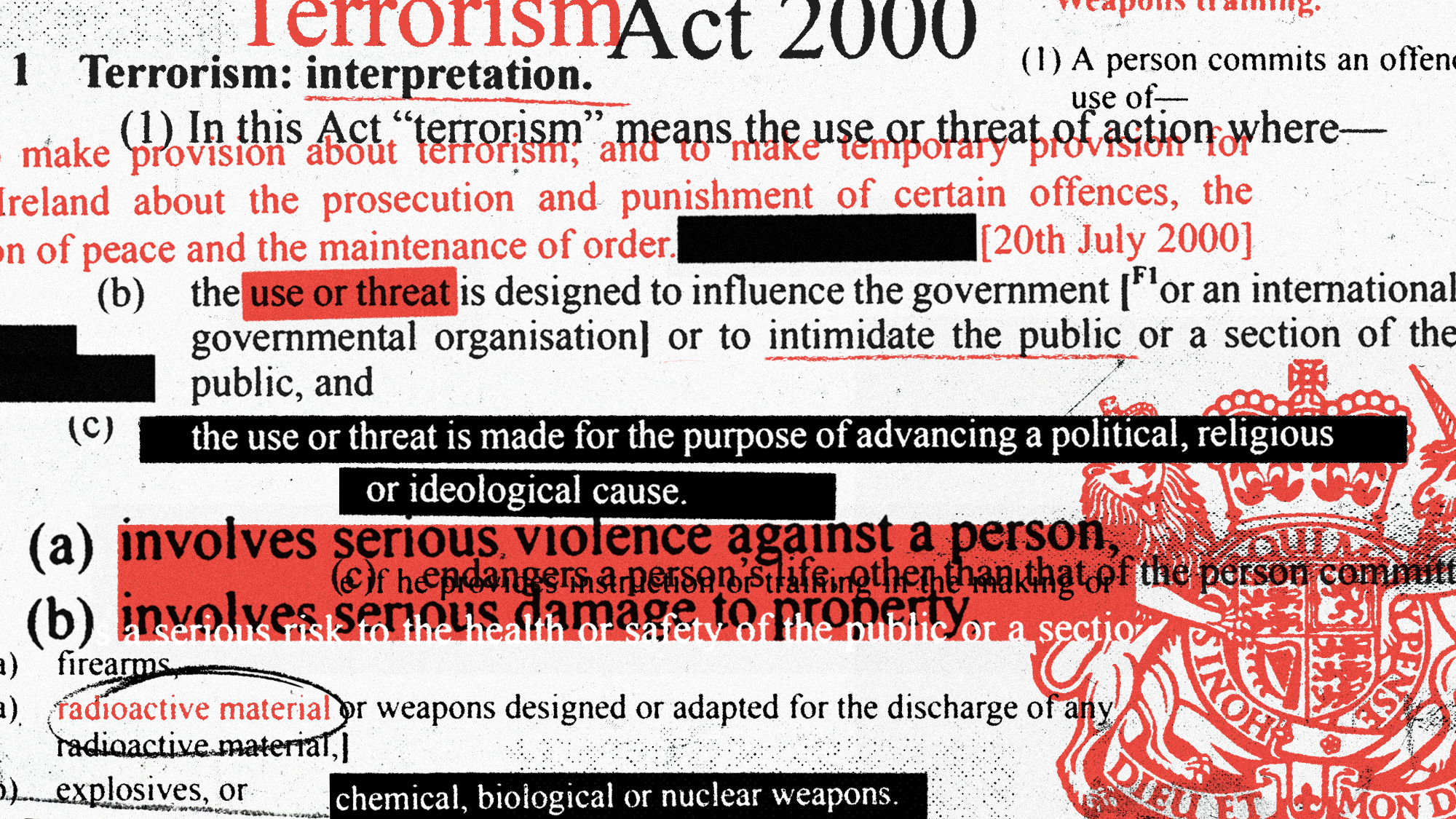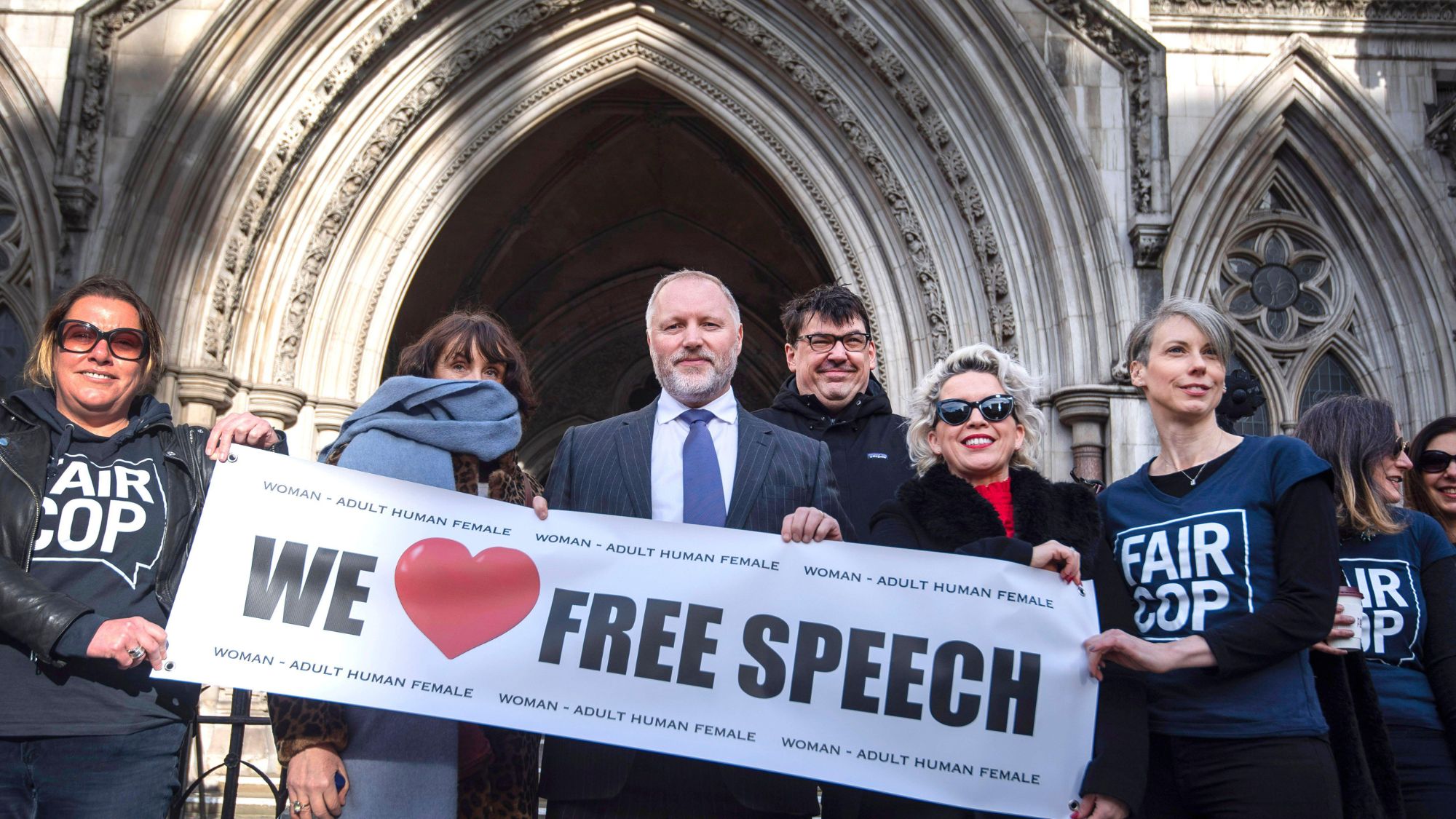Rape in the metaverse: a case for the real-life police?
Investigation launched into attack on girl in virtual reality game amid warnings that sexual offences 'rife' in online worlds

A free daily email with the biggest news stories of the day – and the best features from TheWeek.com
You are now subscribed
Your newsletter sign-up was successful
UK police are investigating an alleged rape in the metaverse, after a child's avatar was attacked in a virtual reality game.
A girl under the age of 16 was left "distraught" after her digital character was "gang raped" by a group of "several adult men" in an online room, the Daily Mail's crime editor Rebecca Camber reported. Although there was "no physical attack", officers were said to have claimed the girl "suffered the same psychological and emotional trauma as someone who has been raped in the real world", as the metaverse – online experiences often accessed via virtual reality headsets – is "designed to be completely immersive".
A senior officer reportedly told the newspaper that sexual offending in online worlds was "rife". This "landmark" case, said Camber, raises questions about whether "such an attack should be prosecuted under current laws". But critics may also ask whether police and prosecutors should be pursuing virtual offences while "struggling with an enormous backlog of actual rape cases".
The Week
Escape your echo chamber. Get the facts behind the news, plus analysis from multiple perspectives.

Sign up for The Week's Free Newsletters
From our morning news briefing to a weekly Good News Newsletter, get the best of The Week delivered directly to your inbox.
From our morning news briefing to a weekly Good News Newsletter, get the best of The Week delivered directly to your inbox.
'No sliding scale for sexual violence'
Some experts say that rapes and murders in the metaverse "might have to be treated as criminal offences because of the real-life impact on the victims", the London Evening Standard reported last week, before news of the "virtual rape" investigation emerged. Graeme Biggar, head of the National Crime Agency, told that paper that victims would "feel a physical manifestation" of an attack if wearing a haptic suit, which allows the user to sense actions carried out in virtual reality.
Home Secretary James Cleverly told LBC's Nick Ferrari today that while it is easy to dismiss these incidents as "not being real", the "whole point" of virtual realities is their "incredibly immersive" nature.
Jayne Butler, CEO of charity Rape Crisis, has also previously warned of the impact of such attacks. "There is a tendency to minimise online abuse or think of it as less damaging than that committed offline," she told Vogue in 2022, but there is "no sliding scale for sexual violence".
'Avatars not yet legal persons'
UK legislation is "unlikely to cover rape in the metaverse", said the Mail's Camber, as sexual assault is defined as "the physical touching of another person sexually without their consent". The internet also "blurs geographical boundaries", making jurisdiction difficult to determine.
A free daily email with the biggest news stories of the day – and the best features from TheWeek.com
The UK's new Online Safety Act covers the metaverse but imposes the duty of care on platform providers rather than law enforcement. Several sex attacks are reported to have occurred on Horizon Worlds, the virtual reality game run by Facebook owner Meta. A spokesperson for the tech giant told The Times that such behaviour has "no place on our platform", which is why users have an "automatic protection called personal boundary" that keeps strangers a few feet away.
According to the paper, details of the case being investigated by UK police are being "kept secret to protect the child involved, amid fears that a prosecution would not be possible".
Avatars "have not been established as either legal or natural persons", Alexandra Andhov, an associate professor of law at the University of Copenhagen, told Forbes last year. So "while their witness statements can be included in a case, the value a judge or jury would give to such evidence remains open".
And to allow an avatar, and the real-life person behind them, "to sue or to be sued", said the news site, any prosecution might necessitate "imbuing an avatar with legal personality".
Harriet Marsden is a senior staff writer and podcast panellist for The Week, covering world news and writing the weekly Global Digest newsletter. Before joining the site in 2023, she was a freelance journalist for seven years, working for The Guardian, The Times and The Independent among others, and regularly appearing on radio shows. In 2021, she was awarded the “journalist-at-large” fellowship by the Local Trust charity, and spent a year travelling independently to some of England’s most deprived areas to write about community activism. She has a master’s in international journalism from City University, and has also worked in Bolivia, Colombia and Spain.
-
 Local elections 2026: where are they and who is expected to win?
Local elections 2026: where are they and who is expected to win?The Explainer Labour is braced for heavy losses and U-turn on postponing some council elections hasn’t helped the party’s prospects
-
 6 of the world’s most accessible destinations
6 of the world’s most accessible destinationsThe Week Recommends Experience all of Berlin, Singapore and Sydney
-
 How the FCC’s ‘equal time’ rule works
How the FCC’s ‘equal time’ rule worksIn the Spotlight The law is at the heart of the Colbert-CBS conflict
-
 Aimee Betro: the Wisconsin woman who came to Birmingham to kill
Aimee Betro: the Wisconsin woman who came to Birmingham to killIn the Spotlight US hitwoman wore a niqab in online lover's revenge plot
-
 Combs convicted on 2 of 5 charges, denied bail
Combs convicted on 2 of 5 charges, denied bailSpeed Read Sean 'Diddy' Combs was acquitted of the more serious charges of racketeering and sex trafficking
-
 Weinstein convicted of sex crime in retrial
Weinstein convicted of sex crime in retrialSpeed Read The New York jury delivered a mixed and partial verdict at the disgraced Hollywood producer's retrial
-
 Driver rams van into crowd at Liverpool FC parade
Driver rams van into crowd at Liverpool FC paradespeed read 27 people were hospitalized following the attack
-
 How should we define extremism and terrorism?
How should we define extremism and terrorism?Today's Big Question The government has faced calls to expand the definition of terrorism in the wake of Southport murders
-
 NCHIs: the controversy over non-crime hate incidents
NCHIs: the controversy over non-crime hate incidentsThe Explainer Is the policing of non-crime hate incidents an Orwellian outrage or an essential tool of modern law enforcement?
-
 The missed opportunities to save Sara Sharif
The missed opportunities to save Sara SharifTalking Point After each horrific child abuse case, we hear that lessons will be learnt. What is still missing?
-
 Gisèle Pelicot: the case that horrified France
Gisèle Pelicot: the case that horrified FranceThe Explainer Survivor has been praised for demanding a public trial of the dozens of men accused of raping her